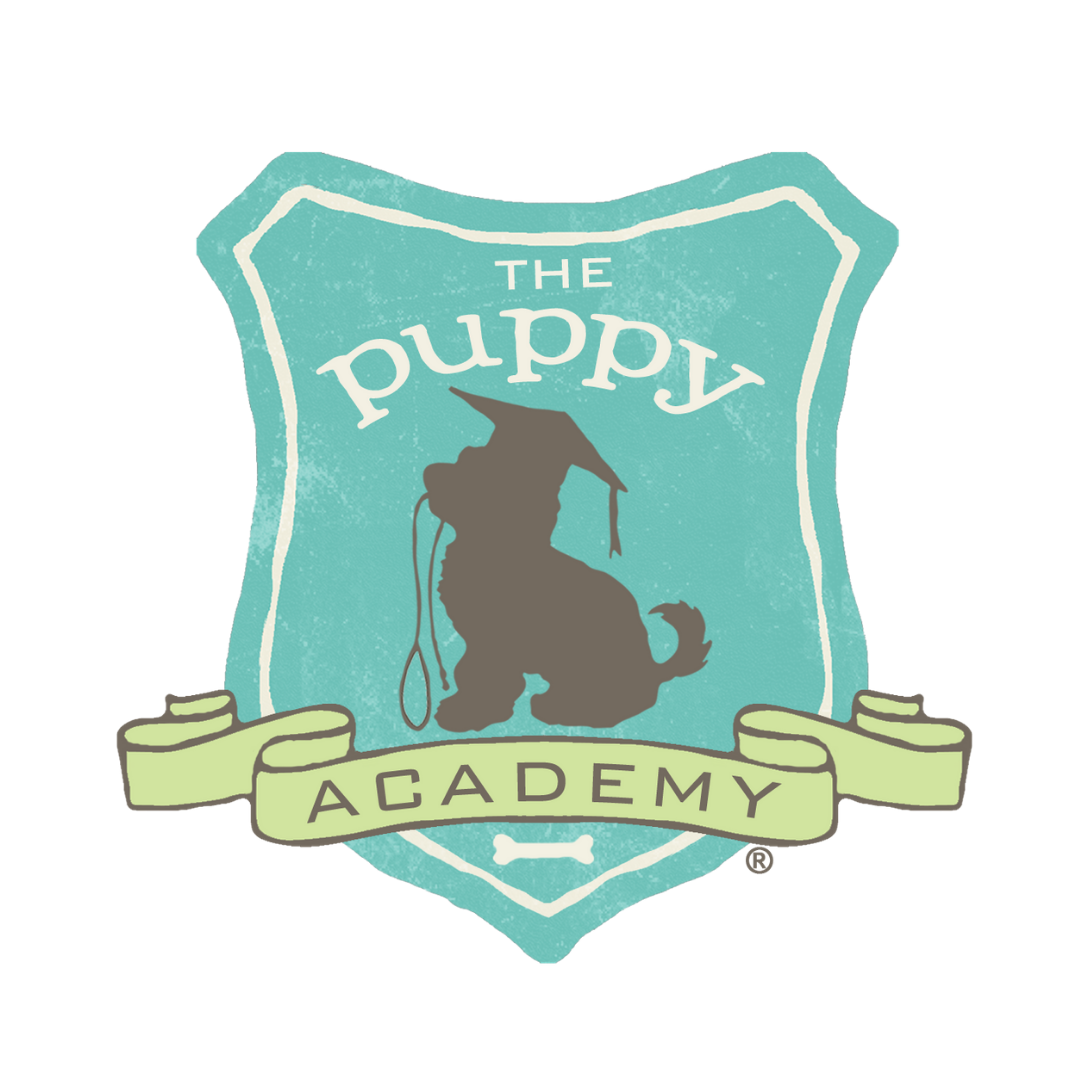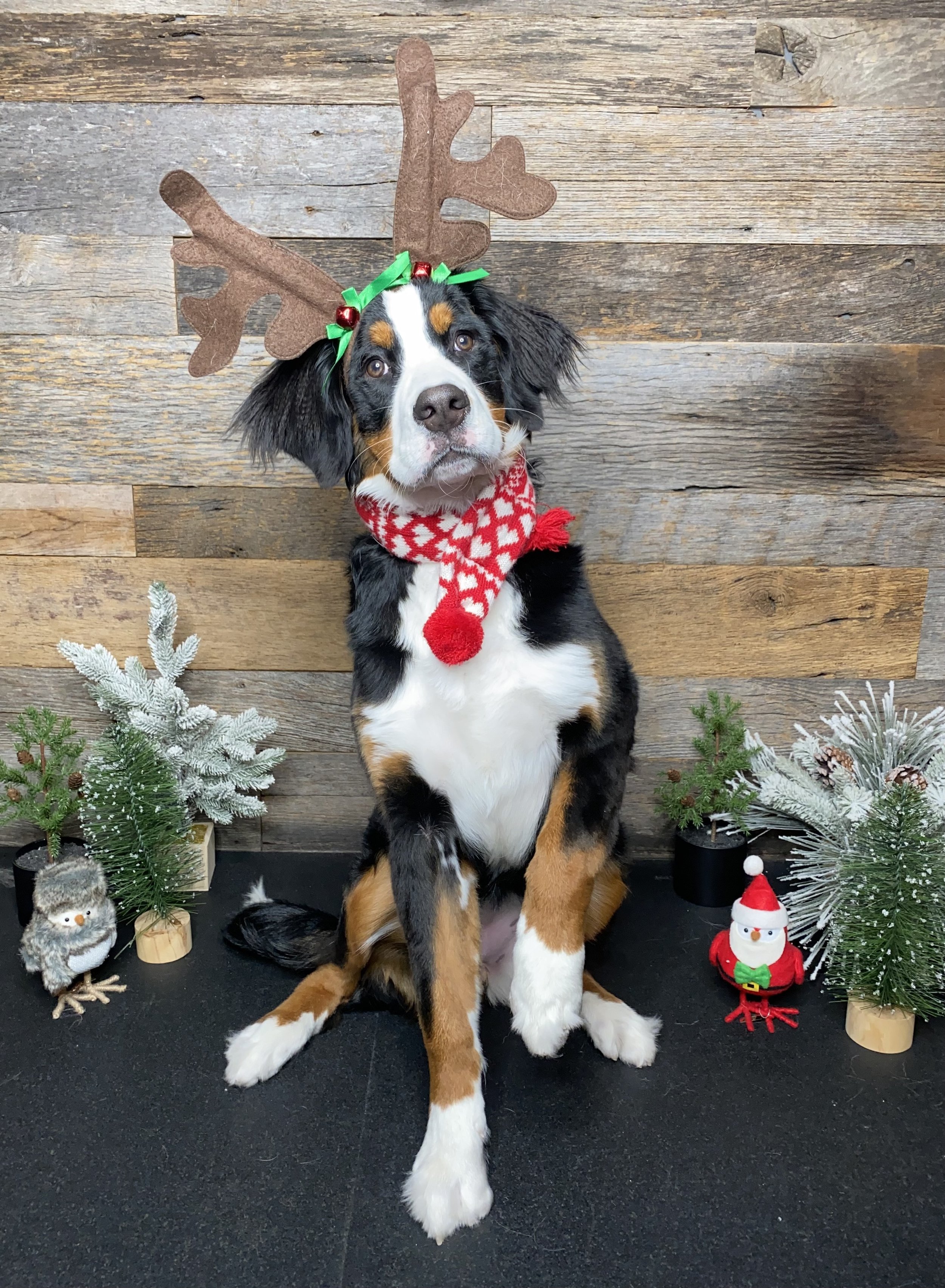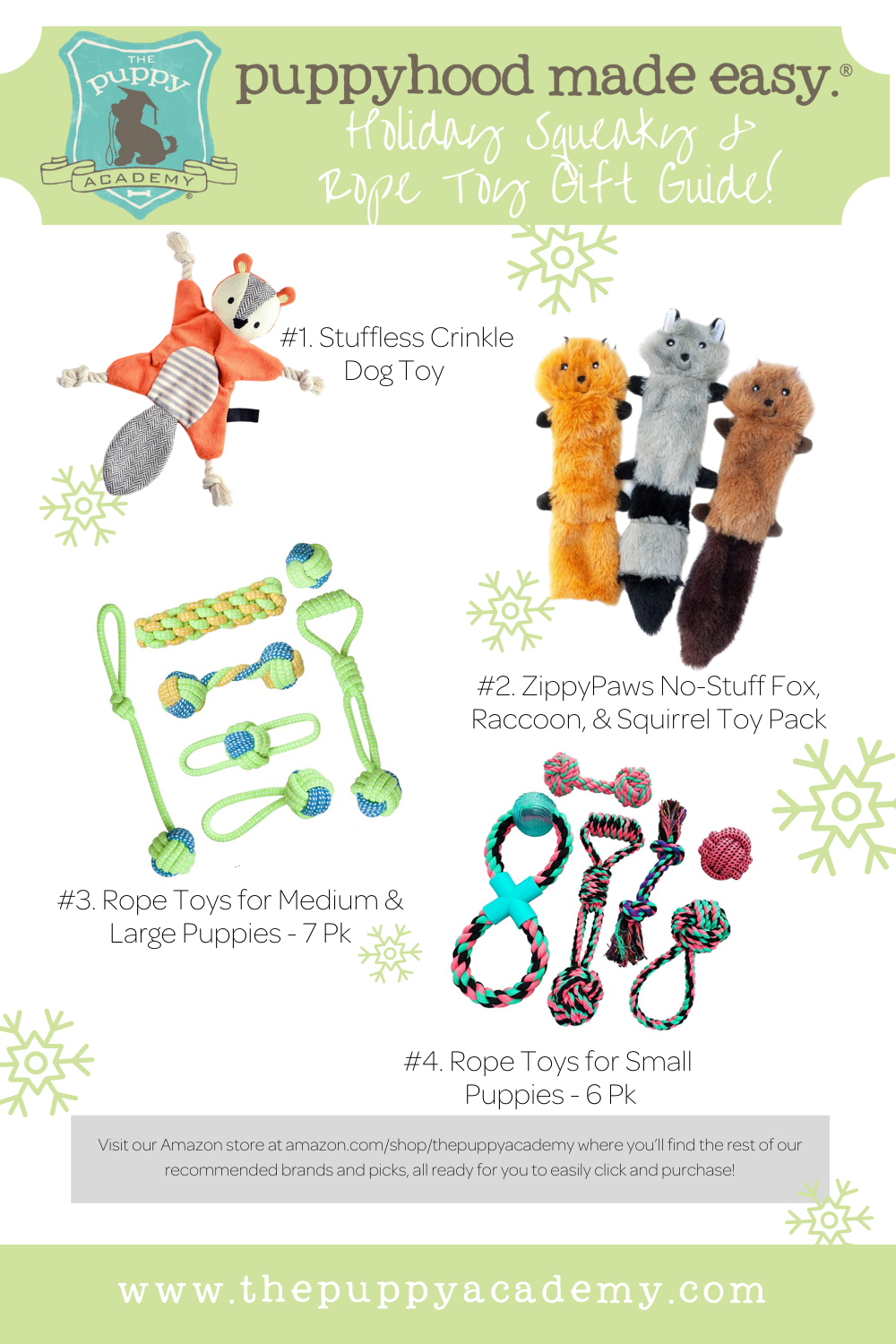Wondering what to get the new puppy or new puppy in your life? We’re sharing our favorite puppy MUSTS that are sure to be a hit for the holiday season! (Just ask all our pups who’ve tried them!)
The Puppy Academy student, Beatrice!
When you work with puppies and their parents every day, it’s easy to know EXACTLY what they need. That’s why we’ve rounded up our favorite tools, toys, treats, and everything in between that we use at The Puppy Academy to help you find the perfect gift!
For the Pups!
Is there a new puppy in your near future? Or maybe you have a family member or friend expecting to bring home a new holiday puppy! Be ready to spoil them with an abundance of fun toys and treats when they arrive at their new forever home! And the best part, many of these toys double as great training tools that can be used as your puppy matures.
Squeaky & Rope Toys are sure to be your pup’s favorite, especially when it comes to playtime with you!
There are great no-stuffing options in a variety of sizes depending on your puppy! These toys offer worry-free play from your puppy accidentally swallowing the interior stuffing.
Rope toys are great for a good game of tug-of-war with your puppy. They double as chew toys so you can use them as a tool to exercise your pup and teach them not to chew on you! Just make sure to put them away when you’re no longer playing together!
Puppy treats will win you extra wet kisses!
Puppy treats a great training tool that can be used in combination with certain toys like Kongs.
Additionally, you can add a treat and bag dispenser pouch to the list for on the go puppy training! We love these pouches at The Puppy Academy and use them daily when training our students’ basic obedience commands, and good behaviors such as walking in Heel or waiting at thresholds.
Chew Toys are a must for new puppies!
Avoid your shoes and furniture from becoming teething-phase casualties by giving your puppy plenty of options to chew on.
Some of our favorites include the long-lasting bones from Benebone and Nylabone. These will give your pup hours and hours of chew relief. Of course, with any long-lasting chew toy, be sure to supervise your puppy and discard any pieces that break off!
Other toys such as the ever classic Kong and Chewball are great to engage your pup’s mind and offer a fun treat reward!
Crates and Playpens are puppy essentials! If you are expecting a new four-legged companion this holiday, puppy-proof your home with these useful tools your puppy can use for the rest of their life!
Crates can help speed up the potty training progress, and also provide your puppy with a safe spot of their own, help boost their confidence, and prevent them from developing separation anxiety.
A playpen helps you give your puppy a safe place they can hangout those times when you aren’t able to consistently supervise them. These items will make raising a young puppy at home much easier while taking away some of the work off your shoulders!
For the Puppy Parents!
Puppies aren’t the only ones receiving gifts this year. Impress the puppy parent in your life (yup, this is your time to spoil yourself too!) with these items! Trust us, you’ll thank us for it!
Our curated bundles of grooming, potty training, and cleaning supplies will make any new puppy owner’s life 100x easier!
These are a must in any household with a new puppy. Accidents happen in those first few months so be prepared with the right tools and supplies.
Part of raising a puppy will involve getting them used to handling and regular cleaning. Stock up on grooming items to help your puppy learn to feel comfortable when getting cleaned up!
For something a little more personal, sentimental, and something a puppy parent will cherish FOREVER, the Puppy Memory Book is a guaranteed hit! We wanted a beautiful keepsake for pup parents to be able to document all those special milestones and moments that happen during puppyhood. So, voila! We created the Puppy Memory Book just for you! Get yours here:
For Puppy AND Parent!
The very best gift to give that will add more fun, love, and enrich your bond together (let’s not forget while teaching some AWESOME skills!) is puppy training! Puppies LOVE to learn new things and they love to be with you. So when you combine those together, this is where the magic happens in our Online School!
Whether you’re wanting to get your puppy potty trained, teach them commands, learn to walk on leash, or want to ensure your pup is getting off on the best “paw'“ possible, The Puppy Academy Online School will teach you how to communicate with your puppy, get rid of the puppyhood issues you’re facing and teach your puppy good manners, with our simple plan to follow and trainer support along the way. Join the class here:
FREE Gifts!
Yes you read that right — we have 3 FREE gifts for the puppy parent in your life too!
Get our latest puppy training tips each week, delivered to your email for FREE! Sign up here:
2. Watch our FREE Masterclass to learn the 5 hacks guaranteed to make puppyhood easy! Get it here:
3. Get personal puppy advice from our trainers for FREE in our Ask A Puppy Trainer Show! Join us every Wednesday at 1pm Pacific Time on Instagram and TikTok @thepuppyacademy to ask your question live!
Celebrating the holidays with your puppy is such a special time! Let us know which of these items become your puppy’s fav, and if you have your own puppy must-haves, share then in the comments! We wish you and your puppy the most wonderful holiday season!
To shop our entire curated list of puppy items, visit The Puppy Academy’s Amazon Store! *Please note we may be eligible for a small commission at no charge to you if items are purchased from our links.
Check out these blogs related to puppy training and more!
Introducing Your New Puppy to the Family Dog!
















